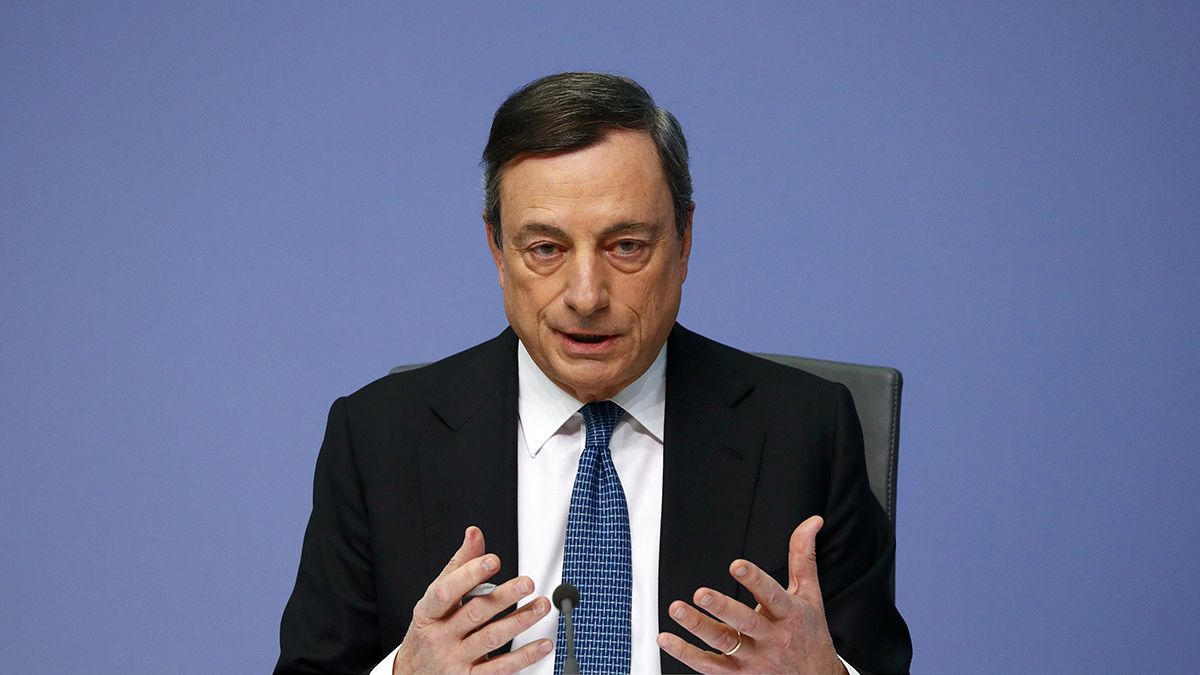The European Central Bank has cut its main interest rate to zero from 0.05 percent as part of stimulus measures intended to boost lending, consumption and inflation.
The European Central Bank has further cut the cost of borrowing to try to get the eurozone economy growing and to stave off deflation.
That is because the ECB sees inflation ultra-low this year at a mere 0.1 percent – way lower than the 1.0 percent it forecast just in December. So, its main interest rate has gone down to 0.0 percent from 0.05 percent.
1. The interest rate on the MRO will be decreased by 5 basis points to 0.00%, starting from the operation to be settled on 16 March 2016
— ECB (@ecb) March 10, 2016
ECB President Mario Draghi said it was taking these steps to stop exceptionally lower inflation from leaking into the overall economy: “It is crucial to avoid second-round effects.”
He added: “Rates will stay low, very low, for a long period of time. We don’t anticipate that it will be necessary to reduce rates further.”
More money printing
The ECB is also boosting its quantitative easing programme – in essence printing money to buy bonds and other assets which puts more cash into the economy.
QE goes up from 60 to 80 billion euros a month and will include corporate debt for the first time.
Draghi explained “We decided to include investment grade euro denominated bonds issued by non-bank corporations, established in the euro area in the list of assets that are eligible for regular purchases.”
Draghi said those asset buys will continue until March 2017 or beyond if necessary.
Cheap loans and deposit rate cut
To persuade commercial banks to take more risks and help businesses and individuals rather than hoarding cash, the ECB has launched four new cheap loan packages, known as TLTROs.
Draghi said there will be a reward for banks that lend more: “A bank that is very active in granting loans to the real economy can borrow more than a bank that concentrates on other activities. For banks whose net lending exceeds the benchmarks, the rate applied to the TLTRO2 will be lower and can be as low as the interest rate on the deposit facility prevailing at the time of the take-up.”
In another stimulus move, the ECB again cut its deposit rate for banks leaving money on deposit with it.
That was already negative meaning banks had to pay to park cash in the ECB’s vaults; now they will have to pay even more.
The deposit rate goes down from minus 0.3 percent to minus 0.4 percent.
The idea is to further persuade those commercial banks will lend money rather than sitting on it to avoid risk.
Will it work?
Even though the ECB has spent 700 billion euros buying bonds in the past year those purchases have achieved little as falling prices for oil and other raw materials have pulled down inflation.
The initial reaction from the financial markets on Thursday was positive. The euro fell in value by more than one percent against the US dollar and European share prices rose, but that bump only lasted a few hours.
However European shares bounced back on Friday.
A recovery in metal and oil prices boosted commodities stocks and the ECB’s bank funding plan supported lenders in the eurozone periphery.
“While markets had a tantrum after Draghi’s comment about not seeing rates going further into negative territory, we still see yesterday’s announcement as net positive,” Mike van Dulken, head of research at Accendo markets said on Friday.
“The overnight recovery in market sentiment suggests markets may be coming round to a similar view, the ugly indigestion finally subsiding.”
